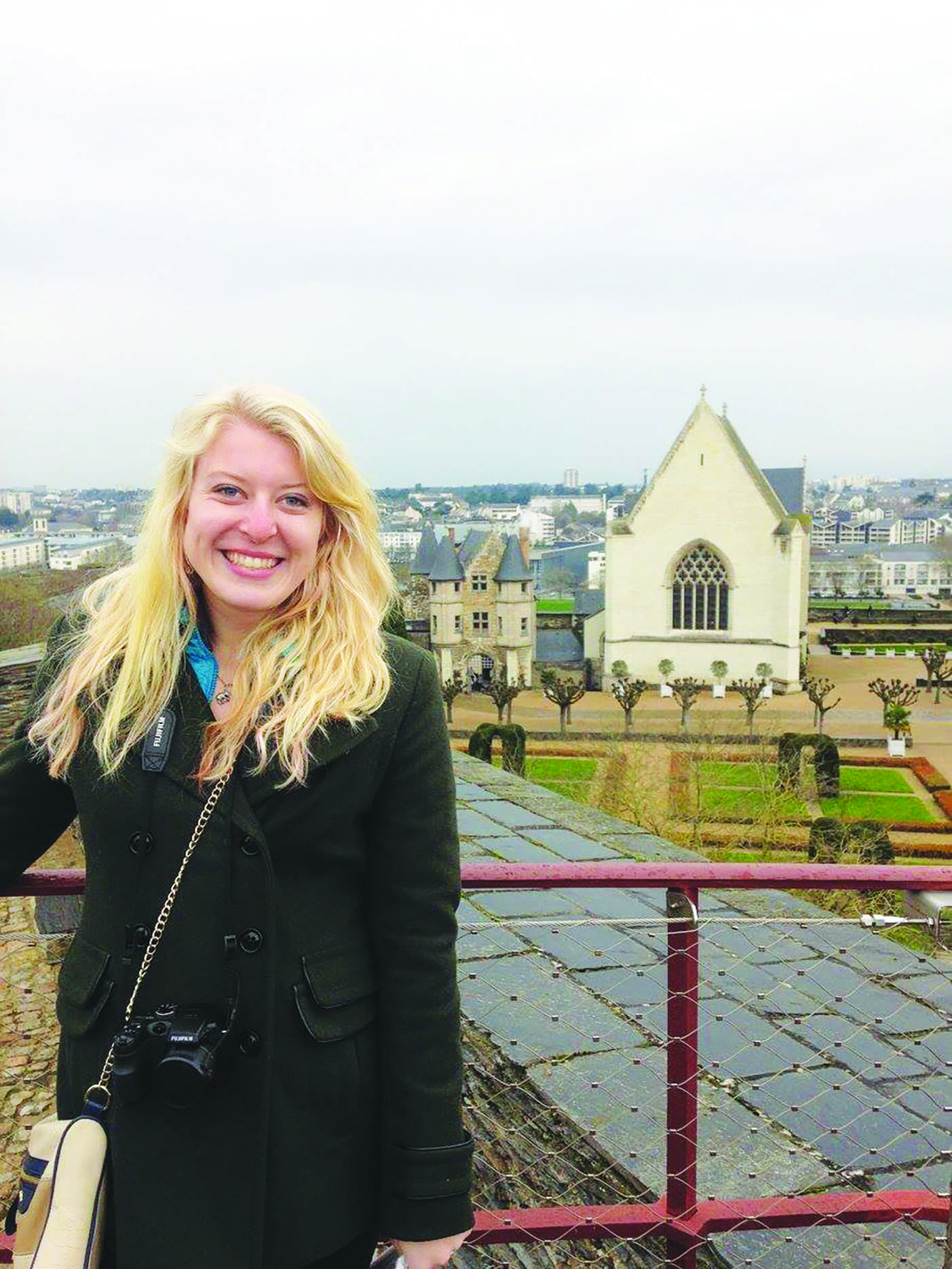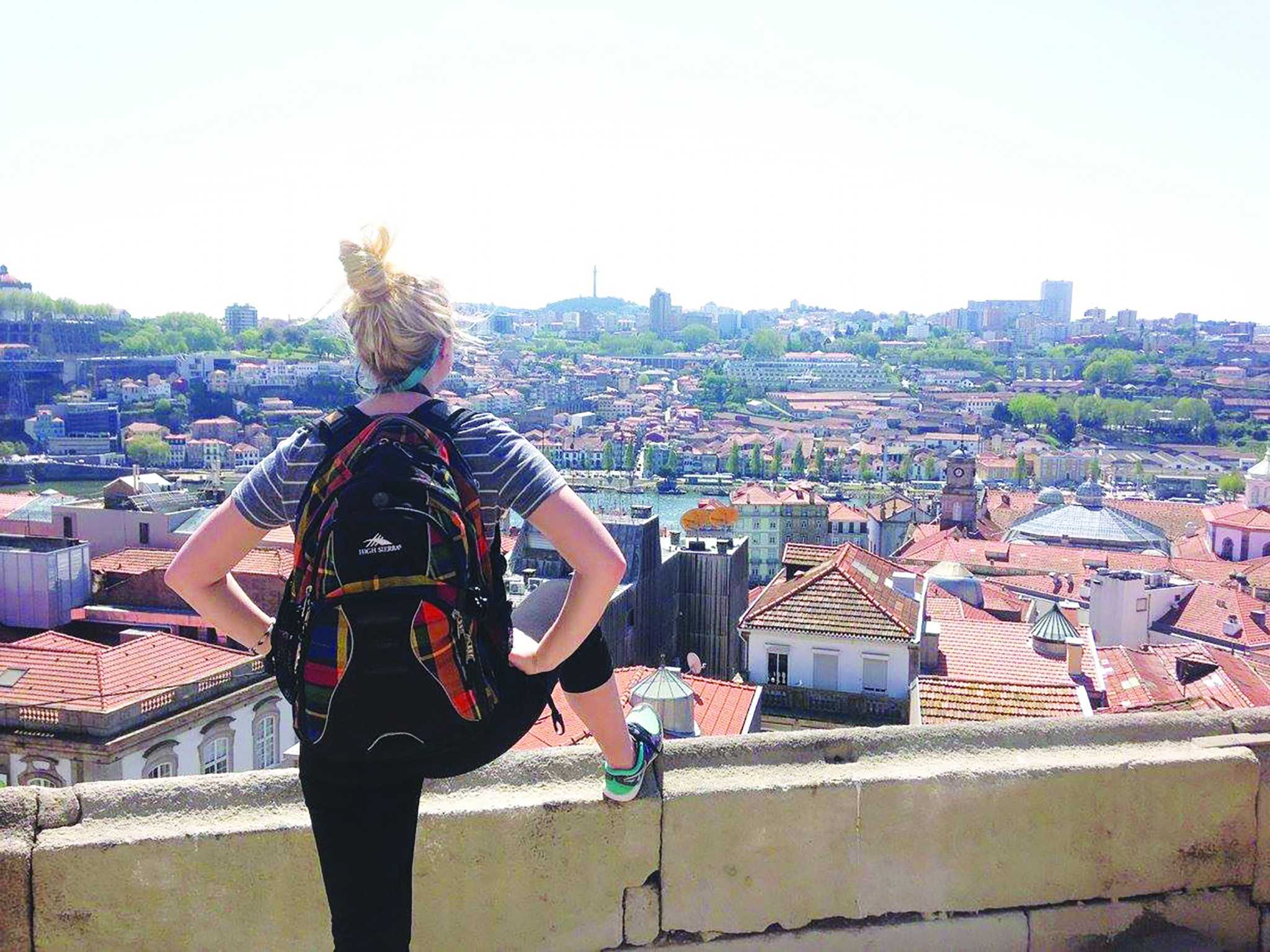During the 2015-16 academic year, Appalachian had 77 short-term, faculty-led programs. For semester and yearlong exchange programs, the university is partnered with 61 different foreign institutions. There are also 13 affiliated partners through third-party companies and organizations that provide short- and long-term programs, international internships, independent studies and opportunities for international student teaching.
Chase Price, international business major, attended a study abroad program from January through May in Sevilla, Spain to study at La Univesrsidad Pablo de Olivide. As he earned 12 credits for his degree, he also spent time traveling through cities such as Madrid, Barcelona and Granada.
Price was able to learn how to communicate in Spanish to his host family that didn’t know English and complete his minor in Spanish. Price said that it was an opportunity he wouldn’t exchange for anything.
“If you’re thinking about studying abroad, just do it. It’s the best time you’ll ever have in school, and you get the chance to step out of your comfort zone to experience a totally different way of life,” Price said. “Not studying abroad would’ve been my biggest regret in college if I hadn’t done it.”
Katelyn Byng, political science major, spent last spring semester studying in Angers, France, and explored all through Europe by traveling to places such as Belgium, Portugal, Italy, Greece and Ireland.

“I went to a ton of places, but I guess my favorites were Paris, exploring Athens, Greece and swimming in the Aegean Sea off the coast of the Island of Milos, eating good Portuguese food in Porto, Portugal, and seeing the Cliffs of Moher in Galway, Ireland,” said Byng.
While studying in France, Byng had the opportunity to work towards her French minor and use her the French speaking skills outside the classroom walls. She said that the most rewarding part of studying abroad was learning a new language and having a new view of the world.
On average, about 300 students participate in semester or long-term programs and approximately 700 students participate in faculty-led education abroad programs.
Chanel Frisco, an assistant director for the education abroad department, said that Appalachian has received positive feedback about their study abroad programs.
“Many students tell us that their experience abroad has changed their lives for the better. They often tell us that they want to go back or find a way to work abroad. I would say negative feedback involves the application process. The process can be time consuming and there is a lot of information and steps involved in the process, but if students begin the process early it is much easier to navigate,” Frisco said.
For long-term programs, the application process will take several months of planning. They must have completed at least one semester of college prior to getting involved with the study abroad program and have a minimum cumulative GPA of a 2.5 or higher depending on the program of study.
The application process for semester or year long programs starts with a student attending a study abroad 101 workshop. These workshops provide information about the different types of programs, the costs for the trips, what coursework and approval will be needed, the financial aid available to students and the application process as a whole.
The student then will make an appointment with an OIED advisor. After meeting with that advisor and finding a program worth pursuing, the student will completely the online application. While waiting for the official acceptance from the host program or institution, the student will complete a course approval form and attend the OIED pre-departure orientation.
Short term trips also require months of planning. Students must find a program that aligns with their academic goals, discuss their participation with the faculty in charge of the trip and make the payments needed to attend the program. They must also maintain a GPA of at least 2.5.
Appalachian provides resources like workshops, advising sessions, and the OIED website to help assist students as much as they can. Through open houses, class presentations, and the International Fair, the school shares different opportunities for students to participate in the study abroad program.
Though Byng enjoyed her trip and is eagerly awaiting the opportunity to return to Europe, she hopes Appalachian will continue to grow their study abroad program and offer students as many resources as possible.
“What we should have is a person for every region of the world to help divide up the work, and a manual written from past students who studied there to assist the students currently trying to study in those areas. But that’s just my two cents,” Byng said.
Mark Hagen, an assistant director for education abroad, said there would be a Study Abroad Ambassador Program coming soon to help inform students about future study abroad programs.
The two assistant directors for education abroad can attest to the importance of study abroad through personal experience. Both Hagen and Frisco have studied abroad in the past, and said that those experiences have helped them work at learning other languages and seeing how other cultures work. Frisco studied at the Universite d’Angers as well as some other universities in England and Scotland, while Hagen studied in Mexico.
“The experience taught me about myself and an appreciation for my own culture,” Hagen said. “I learned independence through my travels and developed a keen sense of understanding of the Mexican culture. None of these experiences can be replicated in a classroom in the United States.”
The two directors find study abroad programs to be important to Appalachian students because it helps them gain a global perspective from which they can form their own beliefs and appreciate world issues through new eyes.
“I think that the world we live in is becoming more and more connected,” Frisco said. “Employers are seeking graduates that have international experiences which demonstrate their ability to adapt, think critically to problem solve, and to be able to work with and relate to people from different cultures.”

